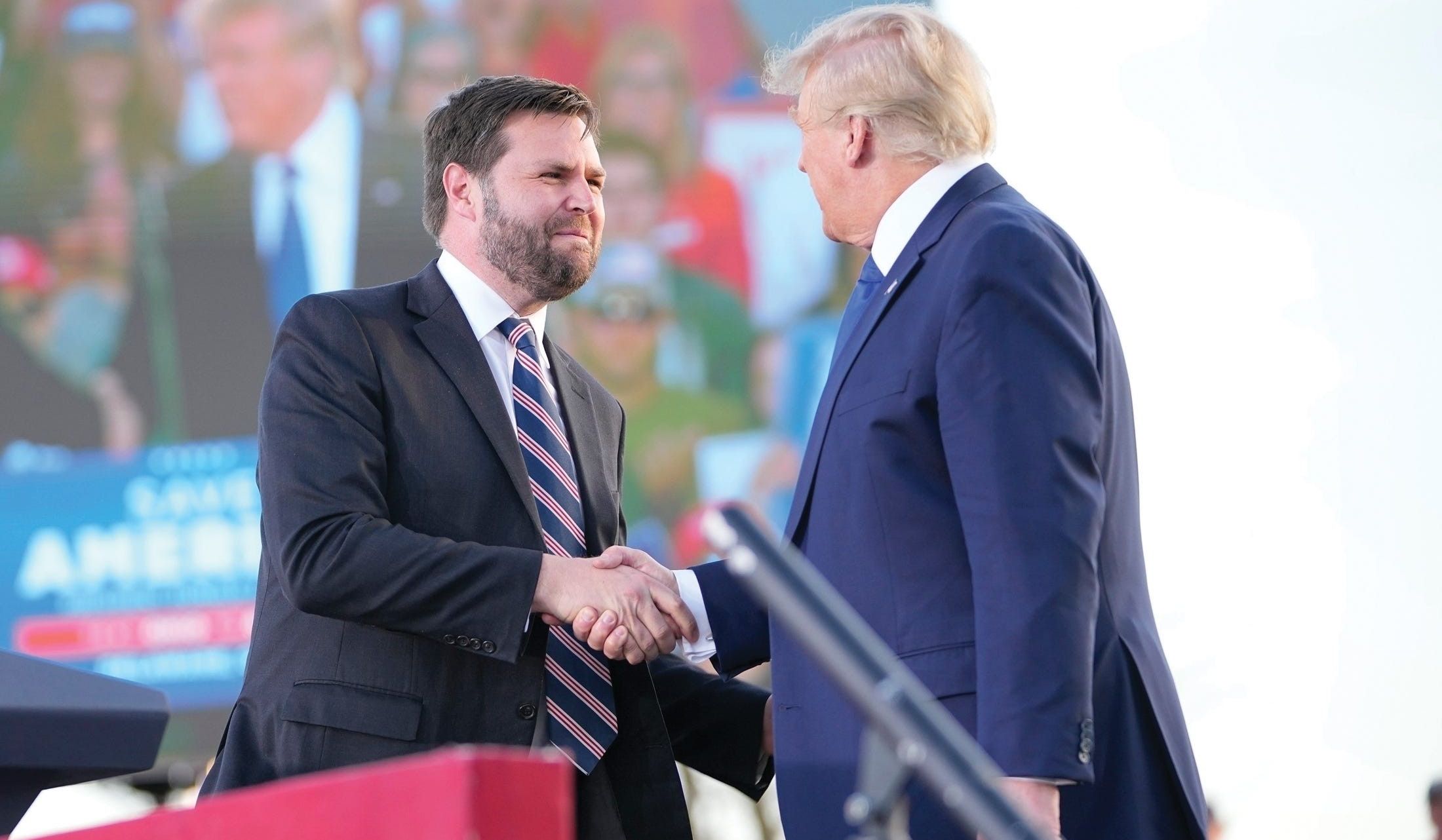Donald Trump announced earlier today that he had selected Ohio Sen. J.D. Vance to be his running mate. Coming only two days after the assassination attempt on the former president in Butler, Pennsylvania, Trump’s selection elevated the young first-term senator to the Republican national ticket as the party’s national convention was getting underway in Milwaukee. In choosing Vance, Trump seems to have ignored pressure from Rupert Murdoch, who had reportedly been lobbying intensively in favor of North Dakota Gov. Doug Burgum and against Vance. Trump has chosen a loyalist who will appeal to his core supporters in the party’s populist wing.
While the selection makes sense in terms of the senator’s political alignment with Trump, it is somewhat unconventional given Vance’s limited experience in government. Vance will be the youngest vice presidential nominee since Richard Nixon in 1952. He has been in elected office for only a year and a half. Vance will likely face a lot of questions about his preparedness to serve as president if necessary.
Trump’s selection will likely prove to be controversial. Vance has become something of a lightning rod for criticism in Washington, especially since he entered the Senate. He first rose to national prominence as an author and critic of Trump’s candidacy in 2016, but he has since transformed himself into a vocal defender of the former president in the last few years. He has closely aligned himself with Trump’s agenda, and he has become a leading critic of the Biden administration’s Ukraine policy.
Vance went to the Munich Security Conference earlier this year to press his case against military aid to Ukraine. If a Trump-Vance ticket wins, it is conceivable that the U.S. could begin reducing or cutting off aid to Ukraine next year. That said, his skepticism about U.S. involvement in foreign conflicts doesn’t seem to extend beyond Ukraine.
Like Trump, Vance also holds some very hawkish foreign policy views. He has attacked Biden for “micromanaging” Israel’s war in Gaza, and he agrees with Trump that the Israeli government should “finish the job.” He has taken a remarkably hardline position on the war and U.S. support for it. He has said, “don’t use America’s leverage to effectively cause the Israelis to pull back here.”
As Reason’s Matthew Petti reported this spring, Vance has sharply criticized the neoconservative record in the Middle East, but “he's doubling down on exactly the vision they've had all along: an alliance of Israel and Sunni Muslim–led states, backed by U.S. military power, to ‘police’ the region.” The U.S. will be hard-pressed to reduce its entanglements in the Middle East if it continues to sustain Israel’s destructive military campaigns. It is impossible to see how implicating the U.S. in the war crimes of its clients serves American interests or makes Americans any safer.
As we have seen over the last nine months, backing a client’s atrocious war does not free up U.S. resources and keep U.S. forces out of harm’s way. On the contrary, it puts targets on the backs of our soldiers and sailors, and it ensnares the U.S. in more unnecessary conflicts with other regional actors. Far from shifting the burden to clients, this approach has imposed new costs on the United States.
Vance’s hawkishness extends to East Asia as well. He has framed his opposition to aid for Ukraine primarily in terms of needing to focus U.S. resources on containing China, and he faults Biden for not doing enough on this front. Vance’s position implies that he thinks that the U.S. should be significantly increasing its weapon shipments to partners and adding to its military presence in the region. To the extent that U.S. policy in East Asia is too heavily weighted in favor of a “military-first” approach, this risks making things worse.
The senator has also expressed support for military action against drug cartels in Mexico. In a 2023 interview, he said, “I want to empower the president of the United States, whether that’s a Democrat or Republican, to use the power of the U.S. military to go after these drug cartels.” This has become a popular idea in the Republican Party in recent years, but it would be a bad policy for both the U.S. and Mexico. As Christopher Fettweis explained in Responsible Statecraft last year, “any military operation would almost certainly fail to destroy the cartels” and “it would not stop the flow of drugs into the United States.” Vance should know from his own military service in Iraq that the U.S. shouldn’t send its troops on impossible, open-ended missions.
Vance’s foreign policy record is not that long, but it contains some warning flags that the American people should take into consideration.
- Where are Trump's possible VPs on foreign policy? ›
- Neocons are melting down over JD Vance | Responsible Statecraft ›
- Why Trump picking Vance as VP is about US foreign policy | Responsible Statecraft ›
- Trump really doesn't want to talk about Israel | Responsible Statecraft ›




 (Shana Marshall)
(Shana Marshall)











